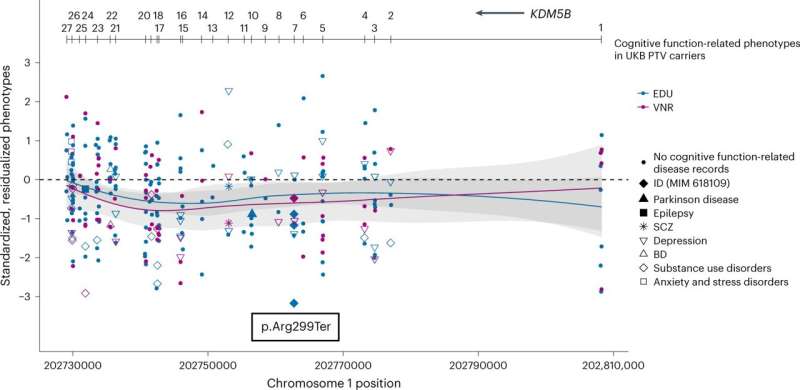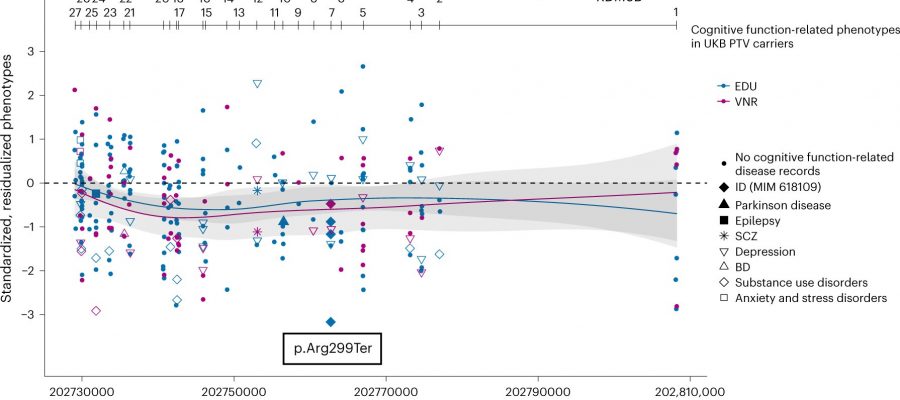
A multi-institution study led by researchers at Biogen Inc. has identified eight genes linked to adult cognitive function through rare protein-coding variants with high-impact effects. In their paper, “The impact of rare protein coding genetic variation on adult cognitive function,” published in Nature Genetics, the teams detail how rare genetic architecture for cognitive function partially overlaps with neurodevelopmental disorders.
The team analyzed exome sequencing and genome-wide genotyping data from 454,787 UK Biobank participants with measures of cognitive function. The analysis found cognitive function strongly influenced by the exome-wide burden of rare protein-coding variants. Eight genes were identified as being associated with adult cognitive phenotypes—ADGRB2, KDM5B, GIGYF1, ANKRD12, SLC8A1, RC3H2, CACNA1A and BCAS3.
The researchers chose to study the genetic basis of three approximations of adult cognitive function: educational attainment (EDU), reaction time (RT), and verbal-numerical reasoning (VNR). EDU is derived from years of schooling, RT is based on a digital test that measures processing speed, and VNR is a general cognitive function test based on questionnaires.
The expression of gene ADGRB2 had the highest association with EDU but no association with RT or VNR. ADGRB2 was followed in EDU by GIGYF1 and KDM5B. KDM5B was the only expression strongly correlated to RT. VNR was a mix of the identified gene expressions, excluding ADGRB2.
KDM5B was the only gene strongly associated with all three cognitive function phenotypes studied. It also showed 16 other significant associations related to muscle function, including hand grip strength, suggesting that the grandfatherly advice of having a firm handshake to make a good first impression might have some neurobiological basis.
In the delicate high-wire act of human cognition, balance and moderation are key. Intellectual developmental disorders affecting the ability to decipher information have been linked to higher levels of KDM5B expression. The researchers followed up on this with a study on mice that found impaired cognitive ability associated with the alteration of KDM5B expression.
Because the KDM5B effects are quantity dependent, they potentially make an ideal drug target and could inform the development of therapeutic interventions. KDM5B is currently being targeted with inhibiting molecules in preclinical development for cancer treatment. Based on the current findings, future research could explore the potential to improve cognitive phenotypes.
The authors point out that several of the gene expressions identified have variants with established roles in neurodevelopmental disorders, suggesting “…that a fraction of adults in the normal general population have lower cognitive abilities as a consequence of defects in single disease genes.”
More information:
Chia-Yen Chen et al, The impact of rare protein coding genetic variation on adult cognitive function, Nature Genetics (2023). DOI: 10.1038/s41588-023-01398-8
Journal information:
Nature Genetics
Source: Read Full Article
